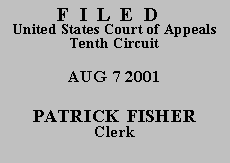

| UNITED STATES OF AMERICA, | |
| Plaintiff-Appellee, | |
| v. | |
| JESUS TORRES-AQUINO, also known as Tomas Perez-Ruiz, also known as Simon Sanchez, | |
| Defendant-Appellant. |
Defendant-Appellant Jesus Torres-Aquino appeals the district court's denial of his motion for downward departure.
On September 14, 1993, Appellant pled guilty to possessing cocaine, an aggravated felony. After serving 120 days in jail, Appellant was deported to Mexico. On April 11, 2000, Appellant was arrested and later charged with unlawful re-entry after deportation, a violation of 8 U.S.C. § 1326(a)(1) and (2), and 8 U.S.C. § 1326(b)(2). A conviction for unlawful re-entry typically carries a maximum penalty of two years' imprisonment. See 8 U.S.C. § 1326(a). However, Appellant was sentenced to forty-one months' imprisonment and three years of supervised release because of an enhancement that applies when "defendant previously was deported after a criminal conviction . . . [and] the conviction was for an aggravated felony." U.S. Sentencing Guidelines Manual § 2L1.2(b)(1)(A) (1999).
Appellant requested a downward departure in his sentence based on the lack of seriousness of his underlying felony, as permitted in Application Note 5 of § 2L1.2. At sentencing, the district court stated: "All right. I've read your Motion for Downward Departure. I've read the Government's response. I have the authority [to] downward depart; however, I choose not to do so. This case does not come under a downward departure criteria." Sentencing Tr. at 2.
Seizing upon the language of the court's last sentence, Appellant now claims that the court "erred in its legal conclusion that the factors in this case did not fall under downward departure criteria." Appellant's Br. at 8. Appellant points out that he meets the criteria for departure listed in commentary note 5 of § 2L1.2.
Viewed as a whole, however, the district court's statement clearly shows that it understood that it had the authority to depart downward, but simply chose not to do so on the facts of this case. Moreover, we have reiterated ad infinitum that "an appellate court lacks jurisdiction to review a sentencing court's refusal to depart from the Sentencing Guidelines when the sentencing court was aware that it had the authority to depart but declined to exercise that authority." United States v. Fagan, 162 F.3d 1280, 1282 (10th Cir. 1998); see also United States v. Fortier, 180 F.3d 1217, 1231 (10th Cir. 1999) ("The rule has been stated countless times."). Accordingly, we dismiss this case for lack of subject-matter jurisdiction.
For the reasons stated above, the case is DISMISSED.
Entered for the Court
Monroe G. McKay
Circuit Judge
*. This order and judgment is not binding precedent, except under the doctrines of law of the case, res judicata, and collateral estoppel. The court generally disfavors the citation of orders and judgments; nevertheless, an order and judgment may be cited under the terms and conditions of 10th Cir. R. 36.3.